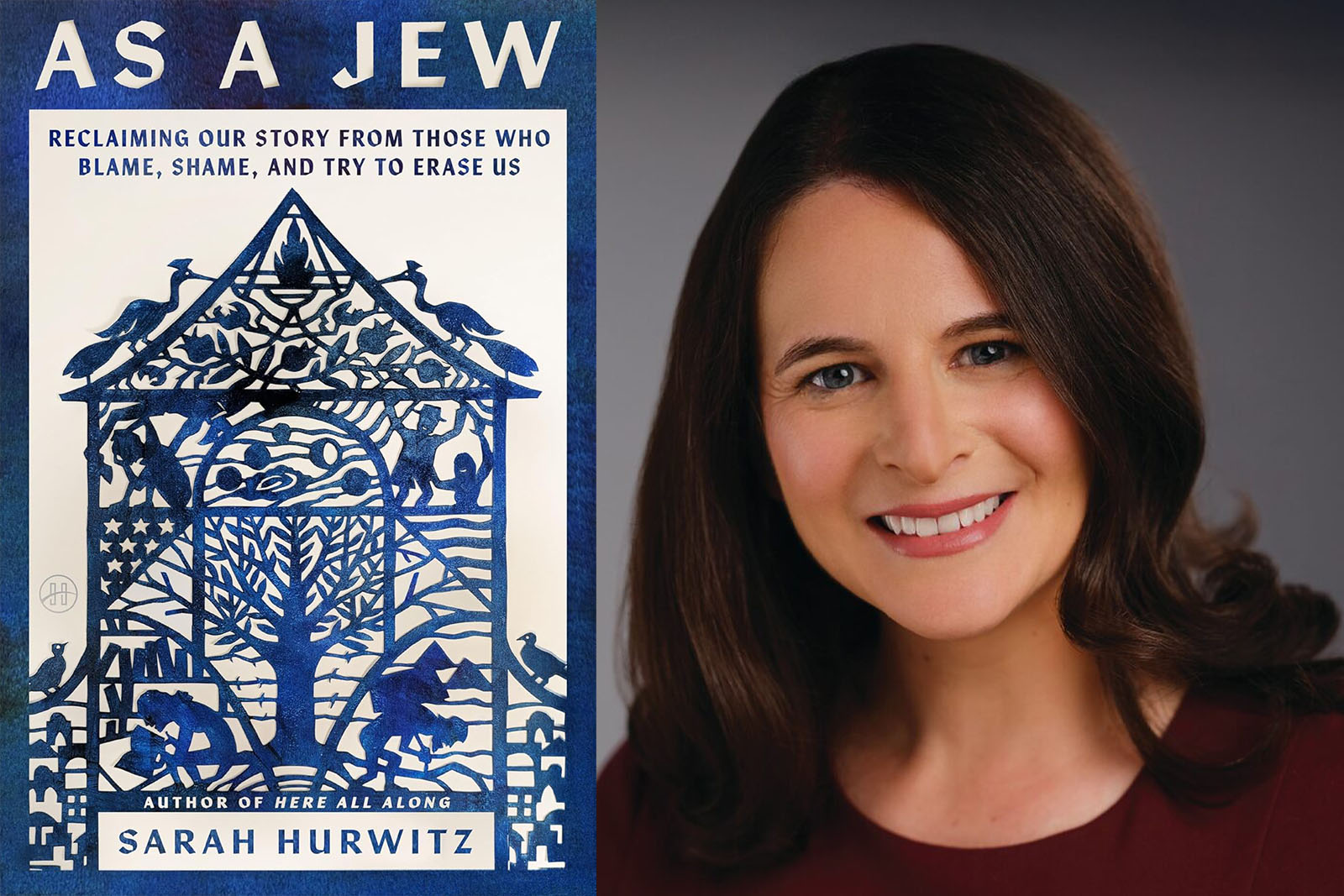
(RNS) — You know when people list their relationship status on Facebook as “it’s complicated”? For many Jews, this phrase defines their relationship with their Jewish identity.
While our relationship with Jewish identity has been complicated for at least 200 years, it has never been more complex, even fraught, than it is today. Jews are absorbing messages from the larger culture, from each other and from those who despise us. Because of Israel, Zionism and the threat of antisemitism, many American Jews, especially young ones, hear a distinct internal message: Curate yourself, edit yourself, disguise yourself, reshape yourself.
Why? Because deep down, like generations of assimilating Jews, many of us want to sit at the cool kids’ table.
Sarah Hurwitz could have sat at the cool kids’ table. For years, she did. She served as senior speechwriter for former President Barack Obama and, later, as chief speechwriter for first lady Michelle Obama. But Hurwitz’s new book, “As a Jew: Reclaiming Our Story From Those Who Blame, Shame, and Try to Erase Us,” will be the game changer for many American Jews who have been struggling with their identity. You can also check out my upcoming podcast interview with her about the book, which published Tuesday (Sept. 9).
Sarah’s first book, “Here All Along: Finding Meaning, Spirituality, and a Deeper Connection to Life — in Judaism,” was a love letter to Jewish tradition. It is my most recommended book for Jews and non-Jews who are curious about what a thoughtful Judaism could look like and feel like.
For Sarah growing up, Judaism involved a few holidays, occasional worship and a handful of universalist values. She found little meaning in it, and she walked away. But in her 30s, she took an introduction to Judaism course. Suddenly, she fell in love with texts, practices and traditions she never knew existed, as she put it:
“I had inherited a family heirloom passed down for two-hundred generations, carried by my ancestors across the globe … I had decided this birthright of mine was shabby. That the design didn’t match my décor. So I had tossed it in the trash and replaced it with something I picked up on my way to the checkout aisle at Ikea. I began to realize that the type of Judaism I was raised with had been highly edited. The parts that had been cut away — Judaism’s unique ethical wisdom, diverse spirituality, emphasis on studying and debating sacred texts, and many rituals and practices that take place outside a synagogue — were the very parts I most loved and admired when I discovered them as an adult.”
She then found herself speaking at a college Hillel. She heard from students about experiences with antisemitism that had left them traumatized. They said their college friends could accept them as Jews but only if they renounced their connections and affections with Israel and Zionism.
Those experiences and many others caused Sarah to realize that for a long time, she had shaped and defined her Jewish identity with apologies and caveats: “I’m Jewish, but just cultural. I’m Jewish, but only ethnic. My Judaism is social justice. My Judaism is the Holocaust.” Two thousand years of antisemitism, and two centuries of American Jewish assimilation had warped her sense of self. She had erased precious traditions to fit in.
“As a Jew” is her attempt to strip away those layers and reclaim Jewish life on Jewish terms. And it’s not merely Sarah’s journey — it’s ours as well. We often truncate and attempt to validate our Jewish identity with “ahems,” like saying, “I’m a cultural Jew.” That usually means, “I don’t do anything Jewish, but I like the food and I laugh at ‘Seinfeld.'”
But a real cultural Judaism is rich and deep and involves Jewish books, theater, magazines, music, movies, art and, yes, food. If we reduce 2,000 years of Jewish wisdom to sitcom humor and universal platitudes, we disrespect our own tradition. And we do that in ways that we would never do to another people.
So, what’s the answer? For Sarah, Judaism’s strength lies precisely in the fact that it is a counterculture. At a time when modern life prizes hyperindividualism and disposability, Jewish ethics insists on exquisite sensitivity to every human being.
That happens in small, almost invisible acts. It might mean that when you go into a store and you see an item you have no intention of buying (or intend to buy online anyway), you don’t ask the salesperson about its price. Why? Because you shouldn’t needlessly raise someone’s expectations.
It could mean that when you have loaned money to someone, and you see them on the street and you know they cannot afford to repay you, you avoid them. That’s because you don’t want to shame them. Or it might mean that in a culture that largely wants to avoid death and suffering, we listen to the voice in the Jewish tradition that commands us to face it directly — to sit with mourners, to wash and prepare bodies, to comfort the sick. In a world that runs from vulnerability, Judaism commands us to run toward it. In fact, Sarah has trained to be a chaplain so she could do precisely that.
She reminds us that our identity need not be complicated. It need not be defined by shame, apology or erasure. The jewels of Judaism are still here, sparkling in plain sight. All we need is the courage to claim them again.
As the Days of Awe approach, read this book. Internalize it.
And it’s not just for Jews, but for anyone who has had to put their identity on the back burner — who has had to hide, dissemble, deny, edit or curate the essential pieces of themselves. Don’t do that anymore. It is time to come home.
